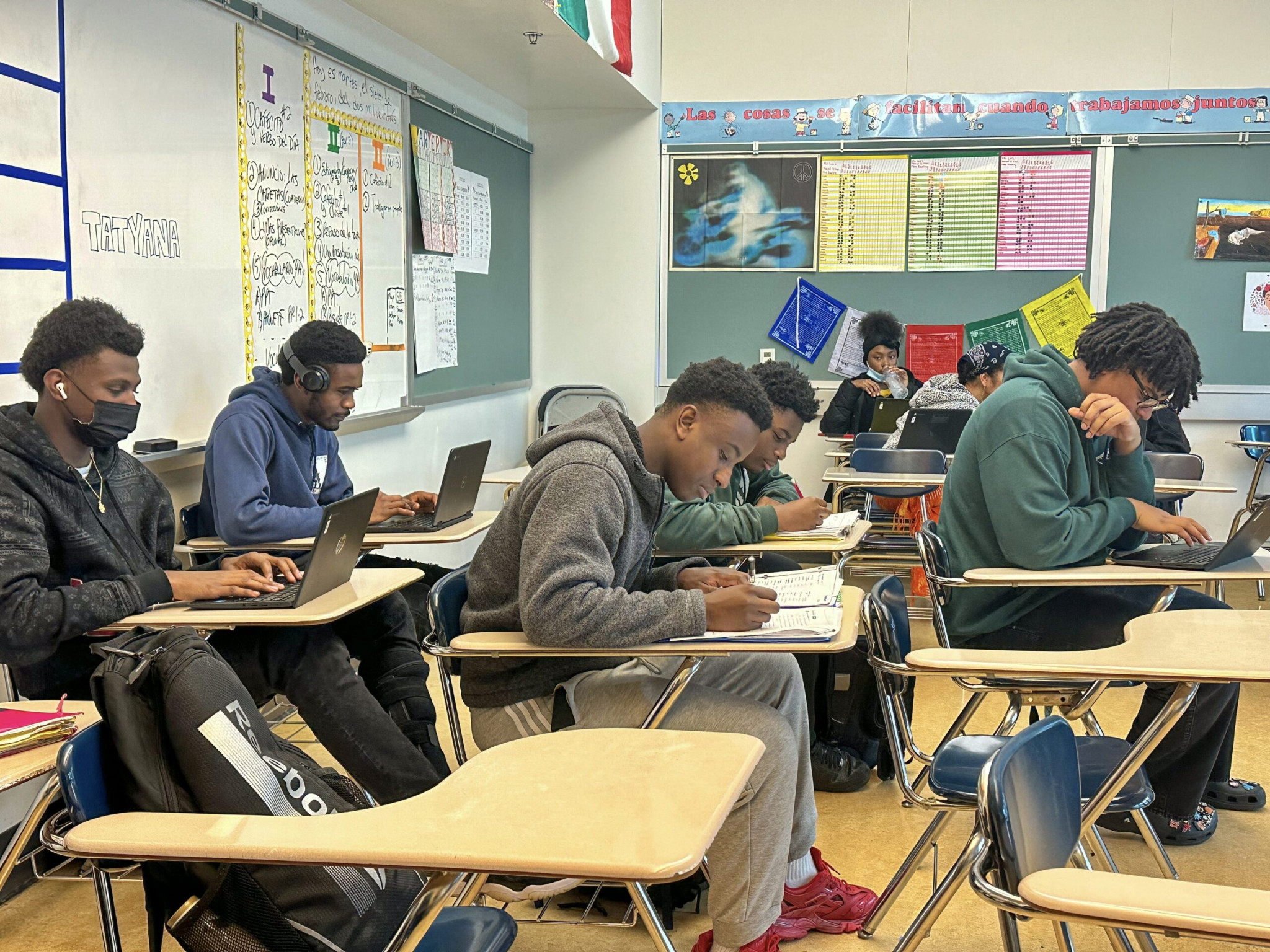The Black Scholars Center at Berkeley High School hosts students on Mondays, Tuesdays, and Thursdays, during seventh period in M-110, to offer academic support in a community based environment. Students come to the Black Scholars Center to do their coursework, discuss college applications with staff, and build relationships with their and peers.
Spencer Pritchard and Dawn Williams, who are BHS teachers and the co-chairs of the African American Studies Department, began the Black Scholars Center during the 2021-2022 school year.
“We had already imagined something ... for students to come, targeting students of African descent, to feel ownership and community on campus, ” Pritchard said. “(A Black Student Center) was actually one of the demands from the Black Student Union, a handful of years back, when they hosted walkouts and protests.”
Since its creation, the Black Scholars Center has experienced a significant growth in attendance. According to data collected by the Black Scholars Center, about 200 contacts have come to the Black Scholars Center this year. About 65 students have come more than five times, and 10-12 students are present nearly every single day. This year, the Black Scholars Center became part of the Attendance Intervention Program. This program allows attendees to clear their unexcused absences.
According to English teacher and Professional Development Coordinator Meikko Lee, the Black Scholars Center is currently working on a goal of expanding the center’s outreach to service more students. The Black Scholars Center conducts outreach through teachers encouraging attendance and reaching out directly to families. To further expand outreach, The Black Scholars Center plans to go into classes and post flyers around school.
The Black Scholars Center utilizes peer tutors, along with teachers, to support students if they need help. Lee, for example, offers extra support on essays, makeup work, and extended lessons if necessary.
Tatyana Martinez is a BHS senior and the head tutor at the Black Scholars Center. For Martinez, being a part of the Black Scholars Center has been an impactful experience.
“I made a lot of new friends here,” Martinez said. “I felt like it helped me with my speaking skills and communicating to other students.”
Beyond regular coursework support, the Black Scholars Center also hosts events. Last year, the center partnered with the Haas Undergraduate Black Business Association (HUBBA), a group of Black UC Berkeley students majoring in business. The HUBBA group hosted a networking career skills workshop. In the future, the Black Scholars Center hopes to collaborate with the Black Student Union of UC Berkeley, as well as members of the community who can share internships and opportunities. One current potential partner is Hidden Genius, a community based organization that supports young Black males.
These events are part of a more holistic support system, where students can get help with college applications and plans, and build relationships and community at the Black Scholars Center.
“We are very big on relationships,” said Williams, who is known by many of her students as “Doc Dub.”
“To have a connection to the teacher or the students, that just helps you to improve academically, to feel connected. The Black Scholars Center creates that space to create relationships in an academic setting,” said Williams.
Lee also emphasized the importance of feeling comfortable and connected in a learning environment.
According to Pritchard, the Black Scholars Center will work on expanding outreach and maximizing impact on the community. To him, the Black Scholars Center is only a piece of systemic change that has come to the BHS community.
“Once we ramp up to our full strength, we will still be able to just make a dent and it’s going to take a deeper systemic change in order to really transform achievement across all demographics of students,” Pritchard said. “We are just one piece of the way bigger puzzle.”





